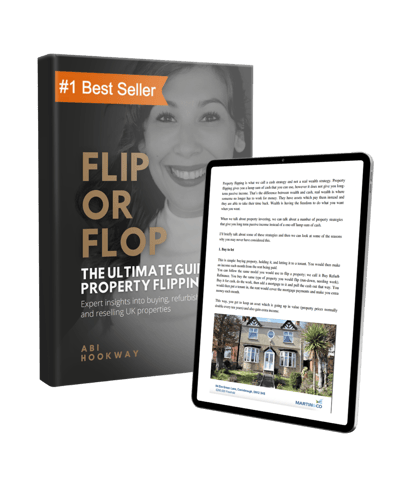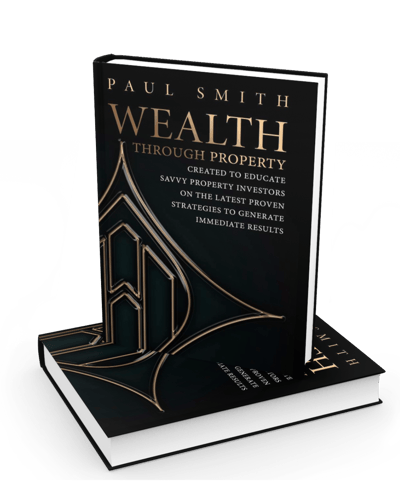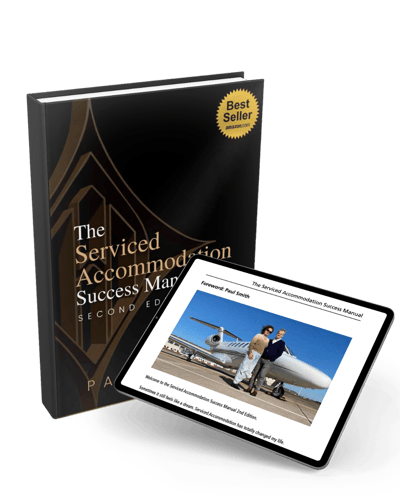Making a property investment can be a great way to make some money, but it requires careful planning and financial commitment.
To get the best return on your investment you need to know how to fund your purchase.
In this blog post, we’ll guide you through the process of financing your property investment – from researching potential areas for purchase to understanding mortgages and completion of the sale. With our advice, you will be able to make an informed decision about how best to finance your property investment so that it works for you long-term.
Paul Smith has been a property investor for over 40 years. Here he explains how to fund property projects.
How are most properties funded?
The census has revealed that the majority of homes are now owned outright, as opposed to owning a mortgage. However, much of this is based on the demographics of people buying homes and when in their lifetimes, as house values have appreciated in value over time.
Rightmove states that cash, mortgage, contributions from family and friends, co-buying and ISAs are credited to the funding of most properties, however this is far from an exhaustive list.
How to raise finance as a property investor
There is a common misconception that you need to have a lump sum to be a property investor, but this isn’t always the case.
Here, we’ll explain how people may find the funds for property investing.
Option 1: Save
The most obvious way to buy investment property is to save.
By putting aside money each month – perhaps not spending on a new luxury item – can result in hundreds of pounds being saved by the average person.
These short-term sacrifices are financially rewarding in the long-term.
Plus, many investment types have low entry price points, meaning that you often don’t need to save as much as you previously thought.
Option 2: Sell
It may be the case that the funds for your investment property are tied up in your existing home or other properties.
To meet an investment goal it might be time to sell and use the capital to purchase another asset or several units.
Downsizing from a main home can also stimulate the release of additional equity.
Option 3: Borrow
Borrow in this example means lending money from a family member or a friend.
The relative may have offered money or you have presented a compelling business case.
In most cases, this amount is likely to fund the ‘deposit’ element of the purchase. If this is used with a mortgage, the mortgage company should be made aware of the agreement.
Option 4: Refinance
If you’ve lived in a home for more than 5 years it is likely that you have a home that is worth more than you paid for it.
It is possible to take some equity from the property and use it as capital for an investment purchase.
This increase in value doesn’t only apply to own homes, but is likely to apply to any investment property, including commercial property and serviced accommodation.
Option 5: Pension
People aged 55 are able to withdraw money out of a pension pot and use the money as they wish.
It is common for individual to purchase an investment property that they will utilise this option.
The ability of pensions, especially if you have a SASS or a SIPP pension, mean that you can effectively leverage more money than you originally thought.
I explain in this video:
Option 6: Joint Venture
Many first time investors find joint venture as the easiest way to access the investment property market.
It means that even if they only have half the cash – or even less if they have expertise they can utilise – they have enough to get started.
The deal of the joint venture might involve a loan with capital appreciation set over a five year period. It is worth following the advice of Touchstone Education’s Joint Venture Finance course before progressing further with this strategy.
Option 7: Lease Option Income
A lease option income alternatively, is one that allows an individual to control a property and generate income from it – with the option of buying it later.
It is usually two separate agreements bundled into one and it is therefore easier to understand when you separate them:
Lease: You agree to a monthly payment on the property which allows you to manage the property and rent it out to tenants for a profit.
Option: You agree a price at which the property can be bought for later.
For how to successfully utilise Lease Option Income, read this case study from Steve Potter.
What should property investors do next?
To make the first steps on your property journey, claim your free Wealth Through Property e-book.
Wealth Through Property is the UK’s leading 2-day property investment course. It is designed to provide you with specialist knowledge of proven investor
strategies. Learn how to get started and build your property portfolio and gain real-world advice.
To find out more information about the property investment courses we offer call us on 01302 897131 or email office@touchstoneeducation.li.










